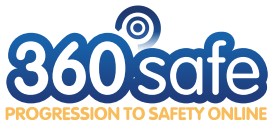Online Safety
We have also included some additional suggestions as to how Parents/Carers can protect our students and make them safer online:
- Encourage your child to tell you when they see something online which upsets them.
-
Know how to report to the CEOP Centre if you are concerned about someone’s online behaviour towards your child. Parents and children can both report at www.ceop.police.uk/Safety-Centre or www.thinkuknow.co.uk
4. Visit Digizen
Safer Internet Day
Safer Internet Day (SID) is an annual, worldwide event to help encourage a better internet.
Respect – I treat myself and others the way I like to be treated. Last year the slogan for this day was “Create, Connect and Share Respect: A better internet starts with you”. It is important for us to ask ourselves before we post any message on the internet or social media, ‘would I consider it respectful if it was something about me or to do with my life?’
Responsibility – I am accountable for my actions and I take a stand when I feel something is wrong. Are you a good ‘Digital Citizen?’ – being a good Digital Citizen involves being responsible for how YOU behave when using things such as the internet, mobile phones, social media and so on. Think before you ‘post’ and take responsibility for your actions. Remember that once it is posted, that information is no longer in your control.
Reasoning – I question what is real. This is about being sensible about what you see or read on the internet or social media. It is always important to realise that just because something has been posted or said, it does not make it true. Always question ‘Do I know beyond any doubt that this is true?’
To view what was discussed during this years’ Safer Internet Day, please click here.
CEOP
Has someone done something online that has made you or a child or young person you know, feel worried or unsafe?
Make a report to one of CEOP’s experienced Child Protection Advisors
Download: National Online Safety Parent login guide
Useful websites:
www.nspcc.org.uk/keeping-children-safe/online-safety/
www.saferinternet.org.uk
www.commonsensemedia.org
www.parentzone.org.uk
www.parentsprotect.co.uk

 Mayfield Grammar School, Gravesend
Mayfield Grammar School, Gravesend
